- Home
- Steven Brust
Five Hundred Years After (Phoenix Guards) Page 29
Five Hundred Years After (Phoenix Guards) Read online
Page 29
“How, she purchased it?”
“On the spot.”
“For a good price?”
“So I am informed.”
“Well, and then?”
“And then she gave the bread away until it was gone.”
The Consort shrugged. “It is a solution for a day only.”
“Not at all.”
“Well?”
“She then gave the bakery back to the baker, on the condition that he return his prices to what they had been.”
“And so?”
“And so the story has spread, and, no doubt, been exaggerated. The people love Aliera, and, if we should arrest her—”
“Bah! What can the people do, Sire?”
“What can the people do? And would you ask a sailor what the ocean can do?”
“No, for the ocean cannot be controlled.”
“Ah, but it can, unless there is a storm.”
“And you fear a storm?”
“A storm, or a flood, yes, madam. I am not ashamed to say that I fear it.”
“Well, perhaps you are right to.”
“So let us review.”
“Yes, yes. Let us act like careful intendants, and be certain our accounts are in order.”
“We have, then, first of all, Lord Adron, and the Princes and Deputies. Next, we have Sethra Lavode. Third, we have the people. All of these argue strongly that Aliera must not be arrested except under the most pressing of circumstances.”
“I perceive, Sire, that you have been carefully advised.”
“Yes, Madam, and by Jurabin, whose business it is to know and understand these matters.”
“Ah! By Jurabin.”
“Yes, madam, exactly.”
“Well then, I have no more to say about matters of state.”
“Then you understand my position?”
“Entirely. Only—”
“Yes?”
“You must weigh these matters of state against personal matters.”
“Personal matters, Madam?”
“Exactly.”
“I confess that I don’t understand.”
“Shall I explain, Sire?”
“If you would be so good.”
“By personal matters I mean that, if you allow yourself to be moved by fear of the people, by fear of Sethra, and by fear of Adron, well, there are those who will think you a coward.”
His Majesty frowned. “Do you think so?”
“Sire, I am convinced of it.”
“And yet, if I do not, there are those who will think me a fool, and I will be the first of these.”
“Then being thought a coward does not disturb Your Majesty?”
“Well, I would not say that it does not disturb me, madam. Yet ever since I was a child, have—”
We do not know how His Majesty intended to complete this intriguing sentence; he was interrupted by a clap at the door, to which he responded—gratefully, to judge by the look on his countenance and the slight lightening of the Orb—by calling out, “Who is there?”
“Sire,” said Thack from the other side of the door, “there is a messenger here who begs leave to speak with Your Majesty on a matter of some urgency.”
“A messenger?” said the Emperor. “And for whom does he message?”
“His Highness, Lord Adron e’Kieron,” said Thack.
His Majesty stared, half rose to feet, sat down again, and said, “Bid him enter.”
“At once, Sire,” said Thack, and the door was opened, admitting the messenger. Where the messenger with whom we opened our history was Teckla, this messenger was a Dragonlord. Where the Teckla was dressed in the height of style, the Dragonlord was dressed in simple military fashion. Where the Teckla was called Seb, the Dragonlord was called Molric e’Drien, and was, in fact, Adron’s nephew and chainman.
His Majesty directed a look at the Consort, indicating that, this being in the nature of Imperial Business, she ought to quit the room. Her Majesty directed a look at the ceiling, as if studying the intricate floral patterns etched therein, indicating that she preferred to stay and hear whatever communication Lord Adron had for His Majesty. The Emperor frowned, thought about insisting, but in the end simply turned to the messenger and nodded for him to begin.
The messenger bowed and opened his mouth, when he, in turn, was interrupted by sudden footsteps appearing at the door. He turned as His Majesty looked over the messenger’s shoulder at the still-open door.
“Ah, Jurabin!” cried His Majesty. “Your arrival is timely.”
“Thanks, Sire,” said the Prime Minister. “Word reached my ears that a messenger had arrived from His Highness the Dragon Heir.”
“Exactly.”
“If I may, Sire, I should wish to hear the message.”
“You may indeed, Jurabin. Please come in. His Highness’s nephew, Lord Molric, was about to begin.”
Jurabin entered, bowed respectfully to His Majesty and to the Consort, and seated himself at the far end of the room, where he folded his hands on the table and assumed an attitude of careful attention. Excepting only the bow to which we have just alluded, Jurabin avoided looking at the Consort entirely—for her part, Jurabin may as well not have existed for all the notice she paid to his presence.
“Now then,” said His Majesty, who appeared oblivious to the interaction, or lack of interaction, between Jurabin and Noima. “You, Sir, were about to tell us what His Highness does the honor of communicating to us.”
“Yes, Sire,” said the Messenger. “Here is the message.”
“We are listening.”
Molric began to recite the message, as if he had memorized every word, pause, and emphasis, which, we do not doubt, is exactly the case.
He began, “To His Imperial Majesty, Tortaalik, Emperor of Dragaera, from His Highness, Adron e’Kieron, greetings.”
“Well,” said His Majesty to himself. “He begins well enough. Where he will go from there?”
The messenger continued, “Your Majesty ought to know that malicious gossips are spreading rumors injurious to Your Majesty as well as to me. In particular, Sire, there are those who claim that Your Majesty would so demean himself as to order searched the private chambers of my daughter, Aliera, the Countess of Limterak, on the flimsy pretext that certain outmoded laws may have been violated.
“Sire, I know this is impossible, yet these rumors abound, wherefore I, as a loyal servant of Your Majesty, feel obliged to bring them to Your Majesty’s attention. Should Your Majesty wish to discover more details about these rumors, he need but ask his faithful and vigilant servant, Adron e’Kieron, Duke of Eastmanswatch, Dragon Heir to the Throne.”
After the messenger, falling silent, had bowed, there was nothing to do except watch as the Orb grew darker and redder, and to speculate upon the nature of His Majesty’s outburst. Even Jurabin, who was normally the one who could caution His Majesty against taking intemperate actions without thinking them through, dared not speak. And Her Majesty could think of nothing except that she had been the one who had cajoled and wheedled Tortaalik into having Aliera’s rooms searched; she had no desire to call any attention to herself whatsoever.
At last the messenger himself, displaying, indeed, all the courage of a Dragonlord, said, “Sire, is there a reply?”
His Majesty stared at him, the Orb so red it seemed to be burning. “You may tell His Highness,” he said at last, “that we have received his message.”
Molric bowed low and backed away, taking himself out the Emperor’s sight, and, no doubt, thanking his personal deity that none of His Majesty’s wrath had been sent in his direction. Meanwhile, Tortaalik struggled in his mind to control the rage he felt. On the one hand were all of the arguments he had just outlined to the Consort, but on the other was a sting to his pride such as he had never felt.
Could matters have fallen out differently? Could someone have said something that might have had a different result, and could the course of the Empire have been changed thereby? In
the sober judgment of this historian: No. Had His Majesty swallowed the offense, there can be no doubt that Adron, who had nicely calculated the insult, would have merely regrouped and, as he did during the Defense of the Gripping Ford, found a new line of attack, until he at last penetrated his enemy’s position.
But such speculations, of course, are pointless, for history is not what men could have done, or should have done, but, rather, what they did. What His Majesty did was take a deep breath, let it out slowly, and turn to Thack, saying, “Bring me my Captain of the Guards.”
Chapter the Nineteenth
Which Treats of a General and a Gentleman,
Or a Dragon and a Lyorn,
And the Interaction Between Them;
Comparing and Contrasting It
To the Interaction Between
Two Less Savory Characters.
SINCE KHAAVREN IS, JUST AT the moment, unavailable, and it will be some time before any of those looking for our brave Captain manage to find him, we will take the opportunity to look in on Aerich and Adron, at the Duke’s encampment outside of Dragaera. Following the departure of the messenger, whose errand Adron knew perfectly well and Aerich guessed, time had passed very slowly, though neither of these gentlemen gave any indication of impatience. Adron busied himself with dispatches and the seemingly endless paperwork of his battalion, occasionally breaking off to study his mosaic of purple stones, while Aerich worked with his crochet hook, creating a stylized Lyorn which he intended to put on a table in his library.
After some hours, a fine meal arrived in Adron’s tent—a meal which combined the most advanced studies of the culinary arts as practiced by the military with the sensibilities of Lord Adron, who had always believed in keeping a proud table. They were served by a young subaltern, who herself selected the wine and brought forth the dishes as they were required by her general and his guest, yet contrived to remain out of their way, and nearly out of their sight.
The two gentlemen set to work on the comestibles in their particular fashions: Adron attacked his food as if it were the enemy, and disposed his knife and his teeth as if they were the forces with which he intended to rout the roasted duck, drive back the hard-crusted bread, scatter the long-bean and rice, and force the confection of apple, cream, and plum wine to surrender unconditionally. Aerich, meanwhile, treated these same dishes as if each were an honored guest, and he did not so much devour them as hold conversation with them, treating each with the courtesy and respect he thought it deserved. It is difficult to say which of them enjoyed his meal the more, yet certainly Adron enjoyed his more quickly—he was sipping strong wine and wandering contentedly about the tent (if we may be permitted such unfortunate euphony) while the Lyorn was contemplating the whipped, frothy confection we have already mentioned, and wondering at the best way to address it with the sweet biscuits at hand.
“A most laudable repast,” he remarked and looked upon the dishes, full and empty, and recalled their contents.
Adron bowed, and gave the subaltern an approving look that she would in due course take back to the chief of Adron’s kitchen. When she had at last gathered up the dishes, napkins, and wine bottles, Aerich sat back contentedly, sighed, and said, “Will Your Highness entertain a question?”
“Gladly, my dear Lyorn,” said Adron, looking up from the patterns of purple stones upon which he had, perhaps as an aid to digestion, begun working once more.
“I must apologize that this question is not related to the duck who has given his life for our palates, nor, indeed, to the elegant and thoroughly mysterious manner in which Your Highness’s chef has managed to season and prepare it over the spit with only the tools of a traveling army at his disposal.”
“Well,” said Adron. “Pleased as I am that you have enjoyed the refreshment, you need not confine your conversation to it. Tell me, if you would, the subject that occupies your thoughts.”
“What can it be, Your Highness, except politics, and the situation in which we find ourselves?”
“Ah,” said Adron. “Yes, I understand you may have some questions on this subject.”
“I do indeed.”
“Begin then.”
“Very well. How does Your Highness anticipate His Majesty will react to the insult?”
Adron frowned. “Insult? I must beg you to explain yourself more fully, for I do not understand the question you have done me the honor to ask.”
“I refer,” said Aerich, “to the insult contained in the message Your Highness has this morning caused to be dispatched to His Majesty.”
“Do you pretend I have insulted His Majesty?”
Aerich returned him a look of inquiry. “I had not realized the matter was in doubt. Had Your Highness wished to convey some other impression?”
Adron’s frown deepened. “Has Molric been indiscreet?”
“Hardly,” said Adron.
“Then how are you aware of what I have said to His Majesty?”
“I have the honor of knowing Your Highness.”
Adron’s countenance cleared, and he very nearly smiled. “Ah,” he said.
“And as to my question?”
“Well, what is your opinion?”
“Does Your Highness wish to know my opinion of this message?”
“Yes, exactly.”
“I think Your Highness ought to follow it at once with another.”
“Follow my first message with a second?”
“Precisely.”
“And what ought this second message to contain?”
“An apology for the first.”
Adron stared for some few moments at the Lyorn, as if deciding whether to become angry. Whether because Adron’s anger was specific, and directed against His Majesty, or simply because Aerich had the natural dignity which permitted him to make such statements with impunity, the Prince in the end decided that anger was uncalled-for. He simply said, “And yet, why should I apologize, when the offense was given by the Emperor?”
“Because,” said Aerich, “he is the Emperor.”
“And therefore his subjects ought to accept whatever treatment he chooses to bestow upon them?”
“Yes,” said Aerich.
Adron looked carefully at the Lyorn while he apparently considered this novel attitude toward the person of the Emperor. At last he said, “Why?”
“Because if the nobility fails in respect for the Imperium, what cause have the peasants to respect the nobility?”
“It seems that I have heard this argument before,” admitted Adron. “And yet, it seems to me that if His Majesty fails to treat the nobility with the respect due our rank, then does that not also encourage the peasantry to do so as well?”
“Is it better to show an example of obedience and respect, or of rebellion?”
Adron took a step forward, planting himself in front of the Lyorn, and cried, “You go too far, sir! Who spoke of rebellion?”
Aerich remained seated and shrugged. “If one insults one’s sovereign, one may be a fool who expects no response, or a martyr who expects to be arrested, or a rebel who expects to resist. I know Your Highness is not a fool; I doubt Your Highness is a martyr.”
Adron looked at him carefully, for a moment, then laughed. “You are no fool either, Lyorn.”
Aerich bowed his head.
“Well?” said the Duke of Eastmanswatch. “I have not rebelled yet, and His Majesty may still apologize.”
“Surely Your Highness does not expect His Majesty to do so, any more than I do.”
“Expect? Hardly, sir. And yet, I hope I am wrong. By all the Gods, he owes me an apology, or, at any rate, he owes my daughter one. To so treat the offspring of the Dragon Heir—but it is of no moment. You are right, I do not expect an apology from His Majesty.”
“And then?” said Aerich. “Can Your Highness resist the entire force of the Empire?”
Adron smiled a little, glanced at the mosaic of purple stones, and said, “Perhaps I can.”
“But,” said A
erich, “does Your Highness truly wish to do so?”
Adron frowned but did not answer.
As these matters of morals (or, as the Demon of Knightsford would have us believe, ethics) were being hinted at, although never directly addressed, in Adron’s encampment outside of the city, at this same time, within the city, other matters were being discussed; matters in which ethics (or morals) played no part, though there can be no question that any gentleman would have been outraged by the very subject, which was nothing less than cold-blooded murder, assassination, killing by stealth rather than skill.
Let the reader not think that this discussion is occurring in the Underside, or, indeed, anywhere that resembles in the least the cabaret where the conspirators have been conspicuously conspiring; rather, this meeting took place in a well-appointed public house on the Street of the Arches, between the Flat Circle, where the bourgeois gathered to buy, sell, and exchange their products, and Silver Exchange Square, overlooked by the graceful and slender Silver Exchange Building itself, frequented by bourgeois and nobility alike, and entirely avoided by Teckla except those servants, lackeys, and errand-runners whose duties brought them there.
The inn, called The Silver Shadow by virtue of its position below the Silver Exchange, was one of the proudest of this proud district, frequented by Dragonlords, Dzurtords, the highest Jhereg nobles, and even those of the House of the Phoenix. There had never, in the thousands of years of its existence (it had, in fact, been erected just after the Silver Exchange building itself) been a fight within the walls of the Silver Shadow, and even harsh words were rare. The proprietor, an Issola named Wensil, stood always at the door, and greeted every guest with a bow appropriate to his House and the cut of his clothing, except for those to whom he politely but firmly refused entrance—and this he would only do if the individual’s dress indicated someone who would stand out unpleasantly. It is a fact that, during the Teckla Republic, Wensil’s ancestors had permitted Teckla within the walls, provided the Teckla in question displayed sufficient wealth.
Within, all was tasteful, and even somewhat reminiscent of Valabar’s Restaurant in distant Adrilankha. There were four rooms, called The Big Room, the Oak Room, the Cherry Room, and the Long Room, each appointed differently, yet each blending harmoniously with the next. We will not try our readers’ patience with descriptions of rooms we will never see, so we will content ourselves with briefly sketching the one in which we find ourselves, that being the Cherry Room, immediately to the right as one entered from the street into the Long Room. The Cherry Room, then, was distinguished by cherrywood booths, a cherrywood bar, and a large hearth in which burned, of course, cherrywood, filling the room with the gentle, sweet smell of this most prized of hardwoods.

 Phoenix
Phoenix Tiassa
Tiassa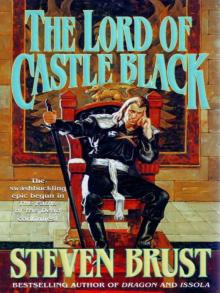 The Lord of Castle Black
The Lord of Castle Black To Reign in Hell: A Novel
To Reign in Hell: A Novel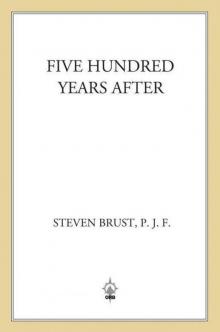 Five Hundred Years After (Phoenix Guards)
Five Hundred Years After (Phoenix Guards)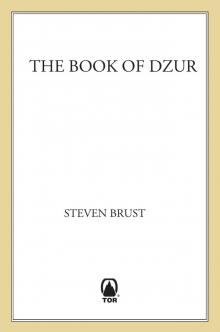 The Book of Dzur: Dzur ; Jhegaala
The Book of Dzur: Dzur ; Jhegaala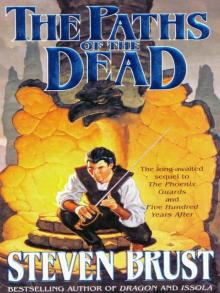 The Paths of the Dead
The Paths of the Dead Jhegaala
Jhegaala The Desecrator: A Tor.com Original
The Desecrator: A Tor.com Original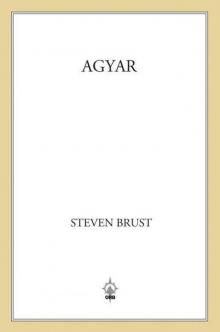 Agyar
Agyar Fireworks in the Rain
Fireworks in the Rain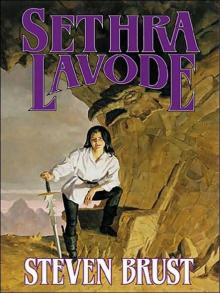 Sethra Lavode
Sethra Lavode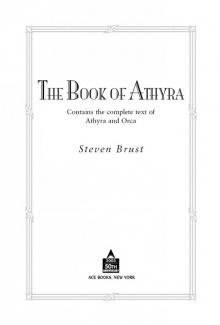 The Book of Athyra
The Book of Athyra Yendi
Yendi Good Guys
Good Guys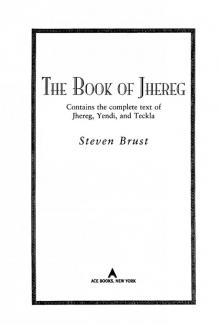 The Book of Jhereg
The Book of Jhereg Cowboy Feng's Space Bar and Grille
Cowboy Feng's Space Bar and Grille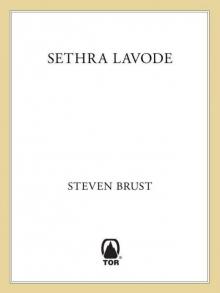 Sethra Lavode (Viscount of Adrilankha)
Sethra Lavode (Viscount of Adrilankha) My Own Kind of Freedom
My Own Kind of Freedom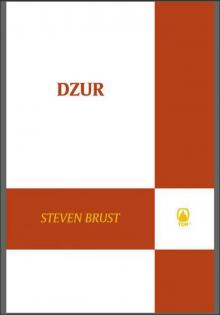 Dzur (Vlad Taltos)
Dzur (Vlad Taltos) The Lord of Castle Black: Book Two of the Viscount of Adrilankha
The Lord of Castle Black: Book Two of the Viscount of Adrilankha Fireworks in the Rain: A Tor.Com Original
Fireworks in the Rain: A Tor.Com Original To Reign In Hell
To Reign In Hell Issola
Issola Orca
Orca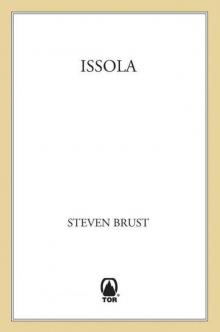 Issola (Vlad Taltos)
Issola (Vlad Taltos)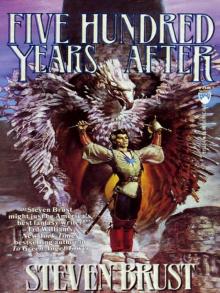 Five Hundred Years After
Five Hundred Years After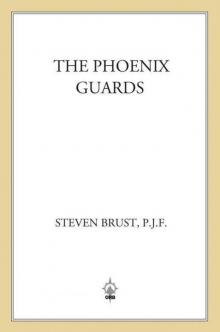 The Phoenix Guards
The Phoenix Guards Taltos
Taltos![[Vlad Taltos 06] Athyra Read online](http://i1.bookreadfree.com/i1/03/24/[vlad_taltos_06]_athyra_preview.jpg) [Vlad Taltos 06] Athyra
[Vlad Taltos 06] Athyra Vallista--A Novel of Vlad Taltos
Vallista--A Novel of Vlad Taltos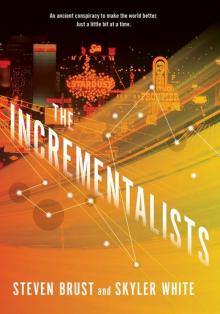 The Incrementalists
The Incrementalists![[Vlad Taltos 04] Taltos Read online](http://i1.bookreadfree.com/i/03/24/[vlad_taltos_04]_taltos_preview.jpg) [Vlad Taltos 04] Taltos
[Vlad Taltos 04] Taltos![[Vlad Taltos 03] Teckla (v 1.1) Read online](http://i1.bookreadfree.com/i1/03/27/[vlad_taltos_03]_teckla_v_1_1_preview.jpg) [Vlad Taltos 03] Teckla (v 1.1)
[Vlad Taltos 03] Teckla (v 1.1)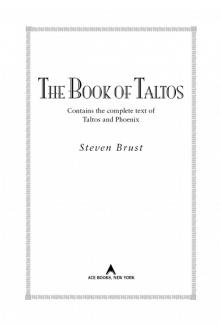 The Book of Taltos
The Book of Taltos The Paths of the Dead (Viscount of Adrilankha)
The Paths of the Dead (Viscount of Adrilankha) Jhegaala (Vlad Taltos)
Jhegaala (Vlad Taltos)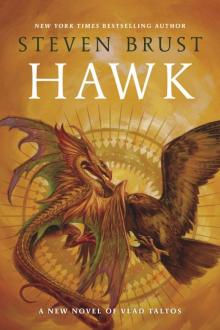 Hawk (Vlad)
Hawk (Vlad)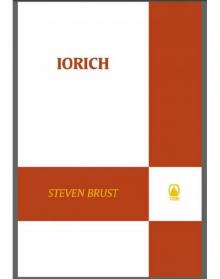 Iorich
Iorich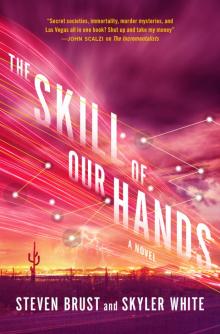 The Skill of Our Hands--A Novel
The Skill of Our Hands--A Novel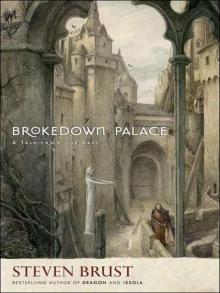 Brokedown Palace
Brokedown Palace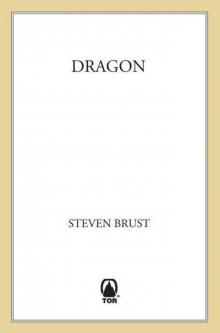 Dragon (Vlad Taltos)
Dragon (Vlad Taltos) Dragon
Dragon Athyra
Athyra Teckla
Teckla Dzur
Dzur